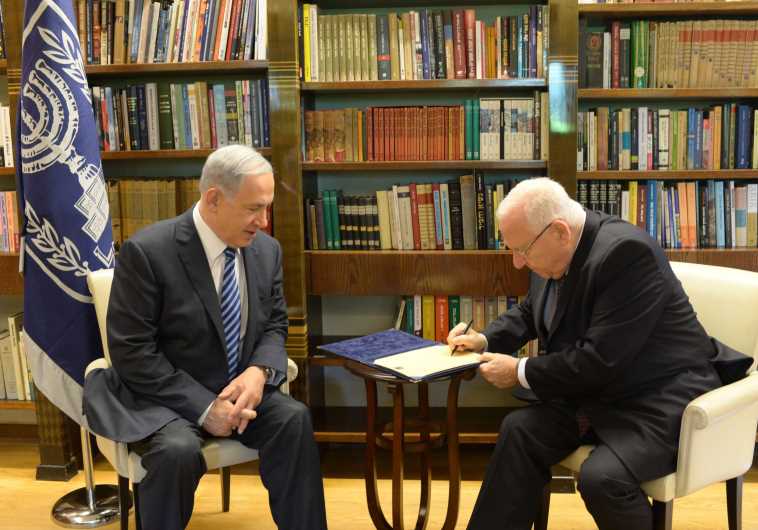Coalition conundrums: Will Israel finally get a stable government?
Having learned his lesson from his last, short-lived, government, Benjamin Netanyahu
is taking six steps to bring about political peace and quiet.
 Rivlin grants Netanyahu 2 week extension to form coalition(photo credit: PRESIDENTIAL SPOKESPERSON OFFICE)ByGIL STERN STERN HOFFMAN
Rivlin grants Netanyahu 2 week extension to form coalition(photo credit: PRESIDENTIAL SPOKESPERSON OFFICE)ByGIL STERN STERN HOFFMAN